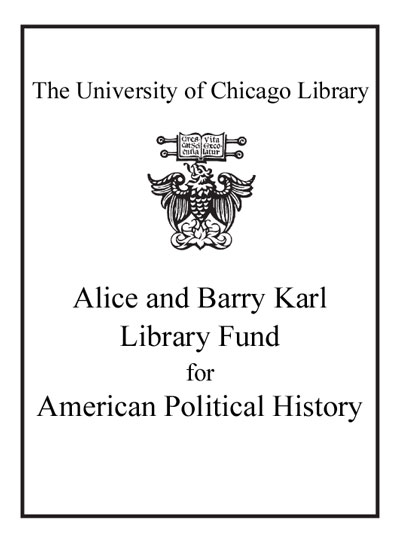|
|
|
|
| LEADER |
00000cam a2200000 a 4500 |
| 001 |
9289109 |
| 003 |
ICU |
| 005 |
20140121191800.0 |
| 008 |
120711s2013 nyu b 001 0 eng |
| 010 |
|
|
|a 2012028189
|
| 020 |
|
|
|a 9781107032958 (hbk.)
|
| 020 |
|
|
|a 1107032954 (hbk.)
|
| 020 |
|
|
|a 9781107655010 (pbk.)
|
| 020 |
|
|
|a 1107655013 (pbk.)
|
| 035 |
|
|
|a 9289109
|
| 035 |
|
|
|a (OCoLC)801051571
|
| 040 |
|
|
|a DLC
|b eng
|c DLC
|d YDX
|d UKMGB
|d YDXCP
|d UtOrBLW
|
| 042 |
|
|
|a pcc
|
| 043 |
|
|
|a n-us---
|
| 082 |
0 |
0 |
|a 306.0973
|2 23
|
| 084 |
|
|
|a HIS036000
|2 bisacsh
|
| 090 |
|
|
|a HN64
|b .M834 2013
|
| 100 |
1 |
|
|a Moreno, Paul D.,
|d 1965-
|0 http://id.loc.gov/authorities/names/n96110834
|1 http://viaf.org/viaf/265127148
|
| 245 |
1 |
4 |
|a The American state from the Civil War to the New Deal :
|b the twilight of constitutionalism and the triumph of progressivism /
|c Paul D. Moreno.
|
| 260 |
|
|
|a New York :
|b Cambridge University Press,
|c 2013.
|
| 300 |
|
|
|a xvi, 349 p. ;
|c 24 cm
|
| 336 |
|
|
|a text
|b txt
|2 rdacontent
|0 http://id.loc.gov/vocabulary/contentTypes/txt
|
| 337 |
|
|
|a unmediated
|b n
|2 rdamedia
|0 http://id.loc.gov/vocabulary/mediaTypes/n
|
| 338 |
|
|
|a volume
|b nc
|2 rdacarrier
|0 http://id.loc.gov/vocabulary/carriers/nc
|
| 504 |
|
|
|a Includes bibliographical references and index.
|
| 520 |
|
|
|a "This book tells the story of constitutional government in America during the period of the ,źsocial question.,Ź After the Civil War and Reconstruction, and before the ,źsecond Reconstruction,Ź and cultural revolution of the 1960s, Americans dealt with the challenges of the urban and industrial revolutions. In the crises of the American Revolution and the Civil War, the American founders ,Ŭ and then Lincoln and the Republicans ,Ŭ returned to a long tradition of Anglo-American constitutional principles. During the Industrial Revolution, American political thinkers and political actors gradually abandoned those principles for a set of modern ideas, initially called progressivism. The social crisis, culminating in the Great Depression, did not produce a Lincoln to return to the founders,Ŵ principles, but rather a series of leaders ,Ŭ Theodore Roosevelt, Woodrow Wilson, and Franklin D. Roosevelt ,Ŭ who repudiated them. Congress and the Supreme Court eventually followed their lead. Since the New Deal, Americans have lived in a constitutional twilight, not having completely abandoned the natural-rights constitutionalism of the founders, nor having completely embraced the entitlement-based welfare state of modern liberalism"--
|c Provided by publisher.
|
| 610 |
1 |
0 |
|a United States.
|t Constitution.
|0 http://id.loc.gov/authorities/names/n79065871
|
| 650 |
|
0 |
|a Progressivism (United States politics)
|0 http://id.loc.gov/authorities/subjects/sh85107324
|
| 650 |
|
7 |
|a HISTORY / United States / General.
|2 bisacsh
|
| 651 |
|
0 |
|a United States
|x Social policy.
|0 http://id.loc.gov/authorities/subjects/sh85140547
|
| 651 |
|
0 |
|a United States
|x Politics and government.
|0 http://id.loc.gov/authorities/subjects/sh85140410
|
| 630 |
0 |
7 |
|a Constitution (United States)
|2 fast
|0 http://id.worldcat.org/fast/fst01356075
|
| 650 |
|
7 |
|a Politics and government
|2 fast
|0 http://id.worldcat.org/fast/fst01919741
|
| 650 |
|
7 |
|a Progressivism (United States politics)
|2 fast
|0 http://id.worldcat.org/fast/fst01078751
|
| 650 |
|
7 |
|a Social policy.
|2 fast
|0 http://id.worldcat.org/fast/fst01122738
|
| 651 |
|
7 |
|a United States.
|2 fast
|0 http://id.worldcat.org/fast/fst01204155
|
| 903 |
|
|
|a HeVa
|
| 929 |
|
|
|a cat
|
| 999 |
f |
f |
|i a4f69158-f648-5d82-8697-d0c082626203
|s 218081fb-32b0-5894-8971-942182578a66
|
| 928 |
|
|
|t Library of Congress classification
|a HN64 .M834 2013
|l JRL
|c JRL-Gen
|i 1273599
|
| 927 |
|
|
|t Library of Congress classification
|a HN64 .M834 2013
|l JRL
|c JRL-Gen
|e KARL
|b 108667158
|i 9197509
|

